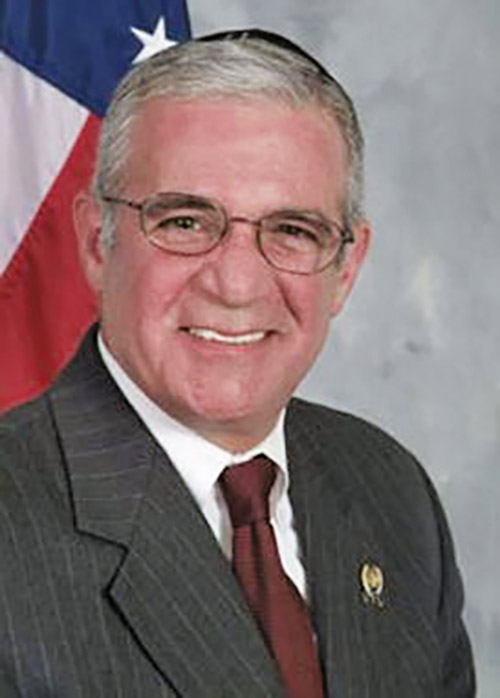
(Courtesy of Assemblyman Schaer;s office) New Jersey Assemblyman Gary Schaer has partnered with New Jersey State Sen. Vin Gopal to introduce A4720/S3145. This legislation will create a comprehensive survey to assess and strengthen New Jersey’s Holocaust and genocide education.
“Through Senator Gopal’s leadership, New Jersey has expanded our public school curriculum to reflect the growing diversity of our state,” said Schaer (D-Passaic and Bergen). “Recognizing historical trauma is vital for building stronger, more inclusive communities and a thriving multi-ethnic democracy.”
As an emerging field, genocide studies have given the world the necessary tools to contextualize historical and contemporary suffering. Without a term to describe the annihilation of the Armenians and the terror of the Russian pogroms, Polish lawyer Raphael Lemkin named the premeditated destruction of people based upon race, religion or nationality the crime of barbarity. By 1944, he created a word to express the systematic exterminations carried out by Nazi Germany—genocide.
In 1994, the New Jersey legislature voted unanimously in favor of incorporating multidisciplinary Holocaust and genocide studies into the K-12 curricula. Ensuring that students understand the process of dehumanization and the enduring threat that genocide represents is critical for preparing them to participate in civic life.
“The Holocaust is more than historical fact; it is antisemitism’s inevitable consequence,” said Schaer. “Holocaust education is a necessary tool for stopping the infectious spread of hate in our society. Public schools are at the heart of developing the next generation of Americans; today’s education will echo into future public policy,” he added.
In response to the historic resurgence of antisemitic violence, Schaer and Gopal have introduced A4720/S3145 to halt the spread of online radicalization through a renewed focus on education.
Schaer’s legislation will authorize New Jersey’s commissioner of education to develop and distribute a survey to every superintendent within 60 days of the bill’s passage. The survey will determine the curriculum content, learning goals, instructional activities and resources utilized throughout the state’s 599 school districts. Superintendents will have 30 days to return the survey; upon receipt the commissioner will submit a report to the governor and legislature, including recommendations to improve educational standards.
The bill also empowers the commissioner to issue a corrective action plan to any district that does not meet existing requirements.
“This crucial legislation empowers our students to participate in the promise of ‘Never Again,’” said Schaer. “We must all stand against those who would use denial to renew the violence.”













